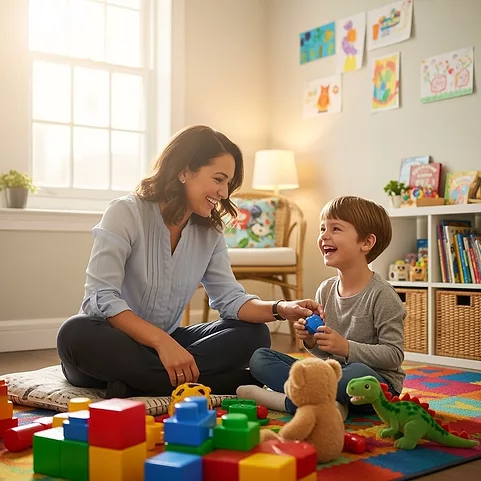Home » The Pharmacological Treatment of Sleep Disorders in Children: An Overview
The Pharmacological Treatment of Sleep Disorders in Children: An Overview
March 1, 2011
From The Carlat Child Psychiatry Report
Caroline Fisher, PhD, MD.
Childhood sleep problems are common, and most practitioners wind up prescribing or recommending something for sleep for a significant portion of their patients. Impaired or insufficient sleep can account for many of the symptoms of childhood depression (low mood, irritability, low energy), as well as many of the symptoms of ADHD (inability to focus, daydreaming, hyperactivity, impulsivity), and even aggression and anxiety (O’Brien LM, Child Adolesc Psychiatr Clin N Am 2009;18(4):813–823).
In this issue of CCPR, Dr. Adhami gives us lots to think about in terms of what might be impairing sleep, and Dr. Wright makes some excellent points about what may not be impairing sleep, as well as some interesting suggestions on how to treat sleep problems, real or imagined, without medication.
A large meta-analysis of psychological treatments for insomnia in adults found an average effect size over 0.8 (a large effect) for sleep onset latency and total sleep time and nocturnal awakenings, with the greatest improvement seen in patients using relaxation techniques (Murtagh DRR and Greenwood KM, J Consult Clin Psychol 1995;63(1):79–89). Psychological treatments don’t always translate well to children, though, particularly hyperactive ones, and some families are not able to follow through with practice.
In a survey of child psychiatrists, 90% had recommended some pharmacological intervention in the past month for sleep (Owens JA et al, Sleep Med 2010;11(7):692–700). In the accompanying table are several things commonly used for sleep, as well as my own thoughts about them and the research behind them, if any.
In many cases, however, treatment of the underlying disorder may be the treatment of choice for the sleep disorder as well. For example, in a study by Kallepalli et al in adolescent inpatients, trazodone was found to regularize sleep only three days faster, on average, than fluoxetine (Kallepalli BR et al, J Child Adolesc Psychopharm 1997;7(2):97–107).
However, the converse can also be true: adults given prazosin for nightmares in the context of PTSD improved in overall symptomatology when their sleep improved (Gehrman PR and Harb GC, J Clin Psychol 2010;66(11):1185–1194). For those kids who need a sleeper, the table on page 2 has a number of possibilities. Imipramine, desipramine, and zolpidem have been left off the table as there are studies showing a lack of efficacy for sleep in children.
Child PsychiatryIn this issue of CCPR, Dr. Adhami gives us lots to think about in terms of what might be impairing sleep, and Dr. Wright makes some excellent points about what may not be impairing sleep, as well as some interesting suggestions on how to treat sleep problems, real or imagined, without medication.
A large meta-analysis of psychological treatments for insomnia in adults found an average effect size over 0.8 (a large effect) for sleep onset latency and total sleep time and nocturnal awakenings, with the greatest improvement seen in patients using relaxation techniques (Murtagh DRR and Greenwood KM, J Consult Clin Psychol 1995;63(1):79–89). Psychological treatments don’t always translate well to children, though, particularly hyperactive ones, and some families are not able to follow through with practice.
In a survey of child psychiatrists, 90% had recommended some pharmacological intervention in the past month for sleep (Owens JA et al, Sleep Med 2010;11(7):692–700). In the accompanying table are several things commonly used for sleep, as well as my own thoughts about them and the research behind them, if any.
In many cases, however, treatment of the underlying disorder may be the treatment of choice for the sleep disorder as well. For example, in a study by Kallepalli et al in adolescent inpatients, trazodone was found to regularize sleep only three days faster, on average, than fluoxetine (Kallepalli BR et al, J Child Adolesc Psychopharm 1997;7(2):97–107).
However, the converse can also be true: adults given prazosin for nightmares in the context of PTSD improved in overall symptomatology when their sleep improved (Gehrman PR and Harb GC, J Clin Psychol 2010;66(11):1185–1194). For those kids who need a sleeper, the table on page 2 has a number of possibilities. Imipramine, desipramine, and zolpidem have been left off the table as there are studies showing a lack of efficacy for sleep in children.
KEYWORDS child-psychiatry
Issue Date: March 1, 2011
Table Of Contents
Recommended
Newsletters
Please see our Terms and Conditions, Privacy Policy, Subscription Agreement, Use of Cookies, and Hardware/Software Requirements to view our website.
© 2025 Carlat Publishing, LLC and Affiliates, All Rights Reserved.


_-The-Breakthrough-Antipsychotic-That-Could-Change-Everything.webp?t=1729528747)



